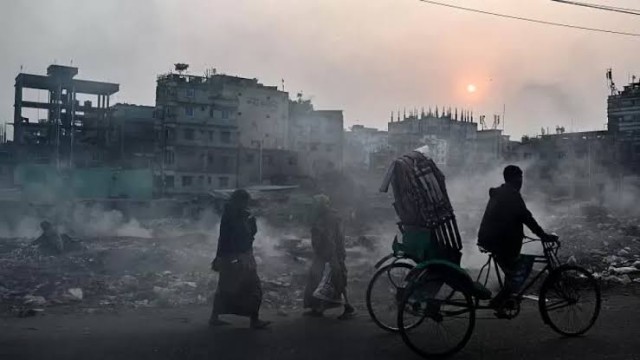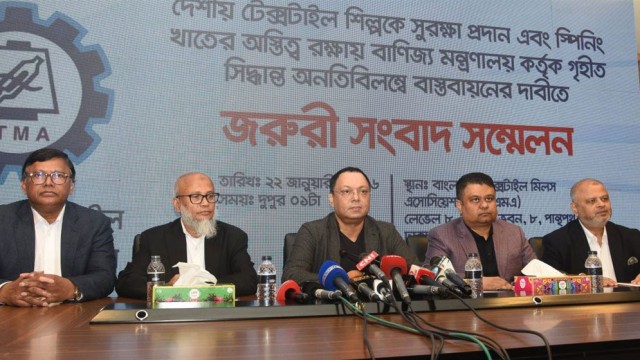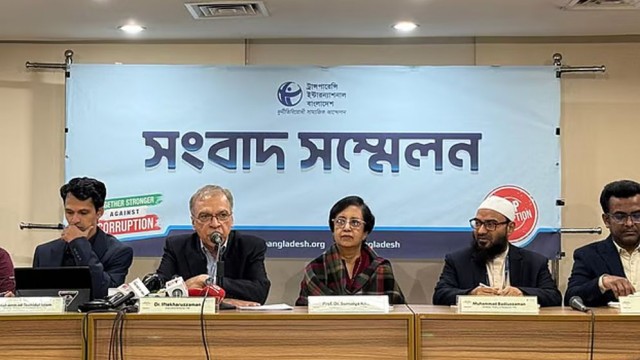The World Health Organization (WHO) estimates that air pollution kills seven million people globally annually, mostly as a result of higher mortality rates from heart disease, stroke, lung cancer, chronic obstructive pulmonary disease, and acute respiratory infections.
The cold weather is still having an effect on city life, and Dhaka's air quality this morning stayed in the "unhealthy" category.
At 9:06 am, Dhaka's air quality index (AQI) score of 175 placed it seventh globally among cities with the poorest air quality.
The air quality is deemed "unhealthy for sensitive groups" when the AQI value for particle pollution is between 101 and 150; "unhealthy" when it is between 150 and 200; "very unhealthy" when it is between 201 and 300; and "hazardous" when it is 301 or higher, posing major health risks to locals.
People may find out how clean or dirty a city's air is, as well as any potential health risks, by using the Air Quality Index (AQI), a daily reporting tool.
Particulate matter (PM10 and PM2.5), NO2, CO, SO2, and ozone are the five pollutants that make up Bangladesh's Air Quality Index (AQI).
The top four cities on the list were Delhi, Mumbai, Kolkata in India, and Karachi and Lahore in Pakistan, with AQI values of 240, 211, 183, and 179, respectively.
Air pollution has always been a problem in Dhaka. Usually, the winter months bring on unhealthy air quality, which then improves during the monsoon.




























Comment: